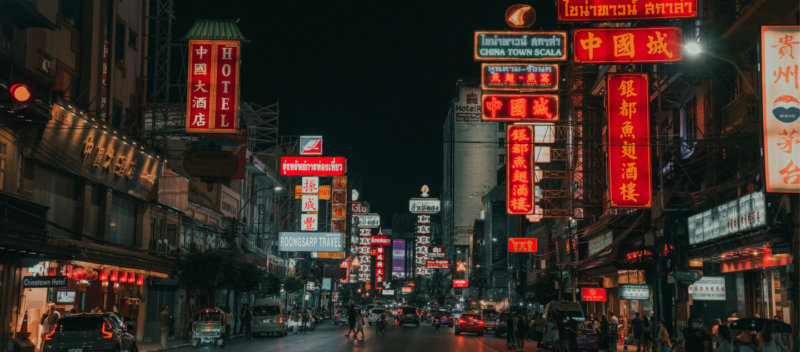

Why did two full-time lawyers and investment managers give up their careers for a bean? We sat down with Nuttaya and Paniti from Kad Kokoa to hear the whole story.
In a bid to escape the hustle, bustle and boredom of office life, the couple went on a motorbiking adventure in the north of Thailand. The gorgeous countryside got them wondering what they could grow when they finally retired from city life. When a farmer in Chiangmai suggested cacao, they noted that they’d seen a few craft chocolate brands cropping up in cacao-growing countries like Dominican Republic as well as more locally, in Vietnam, and began to wonder if it could be done in Thailand.
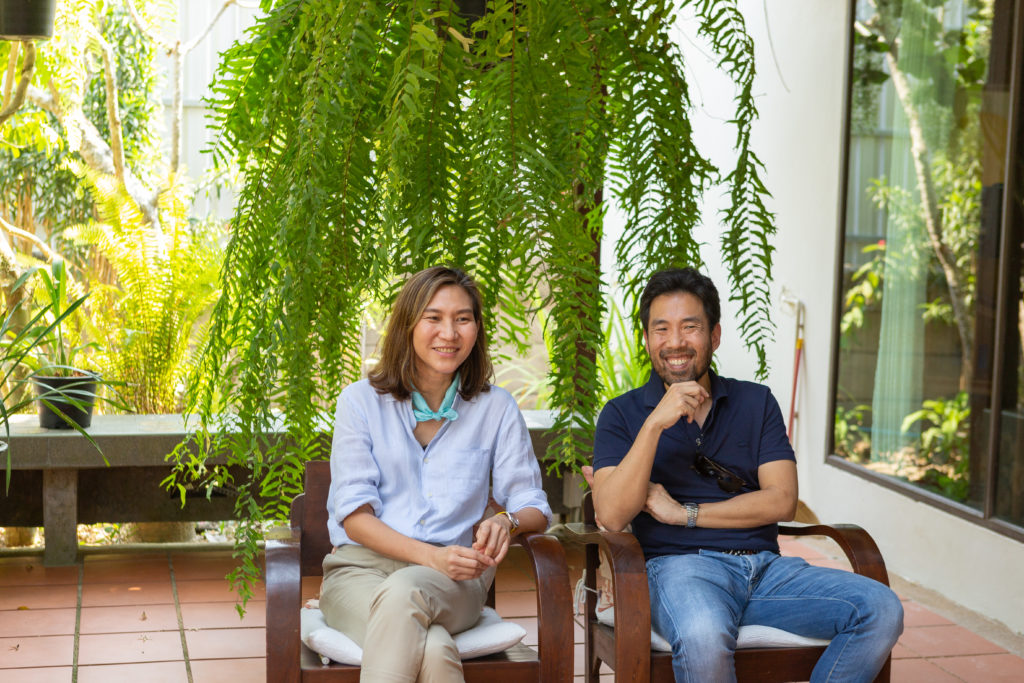
Paniti: So, we started to study how cacao is grown and how we can make it into chocolate. When we learned that you can grow cacao in Thailand, we were interested to see what the taste of Thai-origin cacao and chocolate would be like.
Nuttaya: We bought cacao beans from farmers around Thailand to make chocolate at home and we discovered chocolate from different areas gives different expressions of flavour and smell.
The next step was to find farmers who would grow and supply the cacao beans on a regular basis.
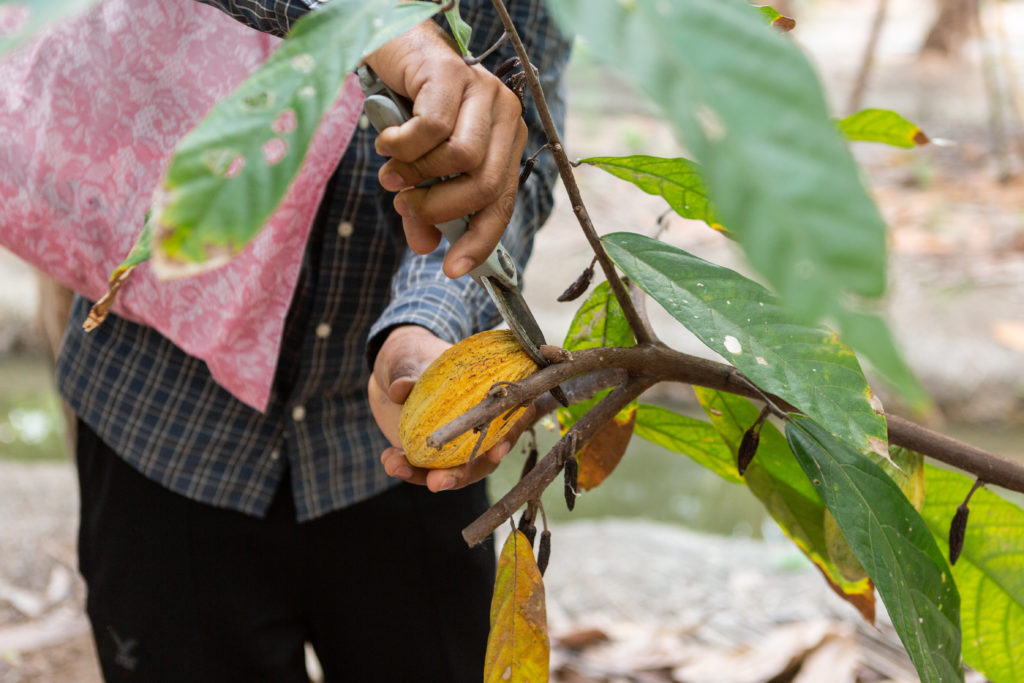
Nuttaya: We started with the Chiang Mai farm.
Paniti: MTT farm focuses on growing coffee. We met Khun Terng, the son of Khun Muangkeaw Chaisuriya, who was a director of Doi WaWee highland, part of the Royal Project. His dream was to bring cacao and coffee to the north. Khun Terng was okay with coffee, which has really taken off, but not cacao. We needed to assure him that if he could grow good organic cacao without chemical fertilisers or pesticides, we’d buy it. It’s been about two years now that we’ve been buying from MTT farm and now we’ve started our outgrowing operations with a few more contracted farms too.
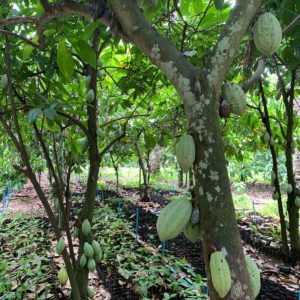
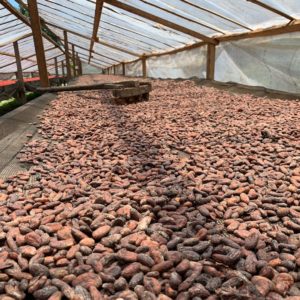
Suriya farm in Chanthaburi and in Amphawa with Uncle Lob, who we just met. We’ve committed to help them to preserve heirloom Amphawa cacao. We want to bring back the specialty cacao industry because Thai farmers used to grow cacao but only sold to big corporations to make industrial cacao, which got blended into the standard confectionary chocolate that’s familiar to most people. So, most have never even tasted what chocolate from their farm tastes like. Our mission is to really focus on each terroir and the taste from each region.
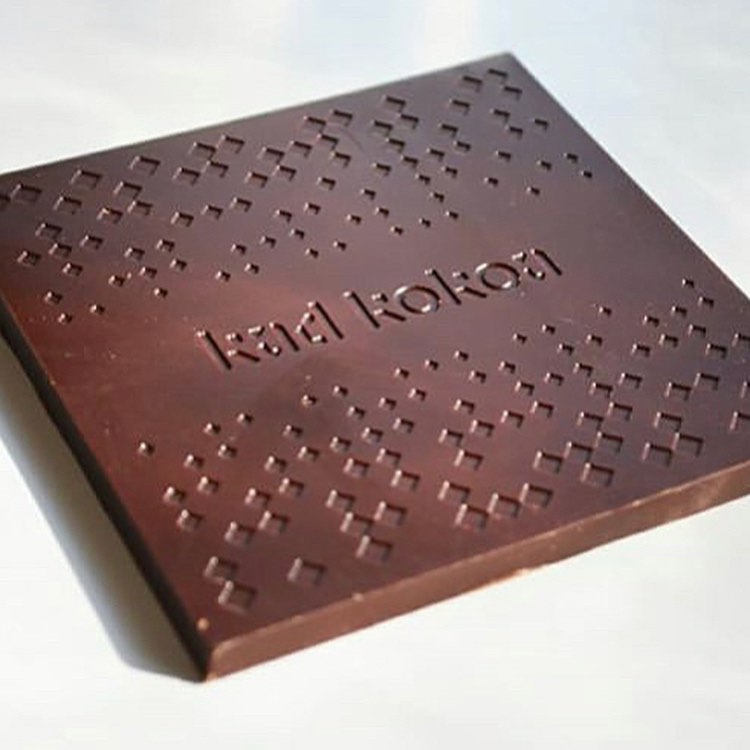
Taste notes vary from person to person, as well as from batch to batch. We are not an industrial maker so we don’t need to standardise the flavour. But broadly, a 70% dark chocolate made by Kad Kokoa from Chiang Mai tastes flowery and of honey. From Chantaburi, it has tropical fruit notes, raisin and sour cherry. From Amphawa, it’s like ripened or sun-dried banana. Those from Prachuap Khiri Khan are like coconut and pineapple, and the chocolate from Chumphon is the most chocolatey; it’s like graham crackers if aged.
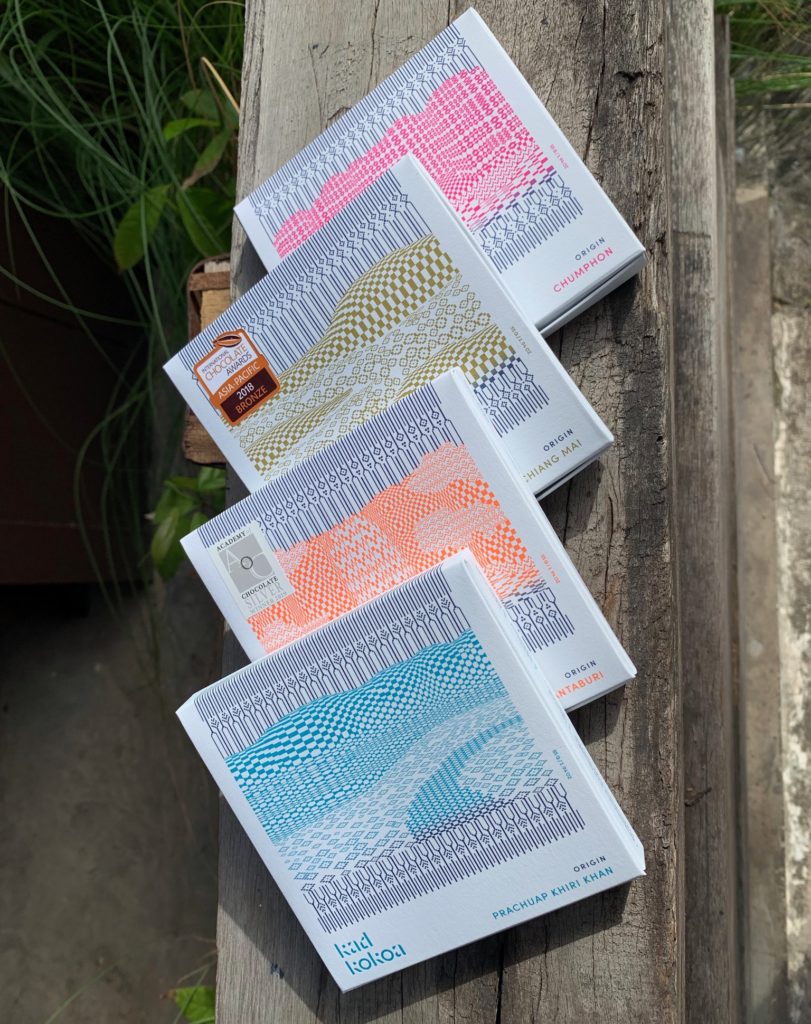
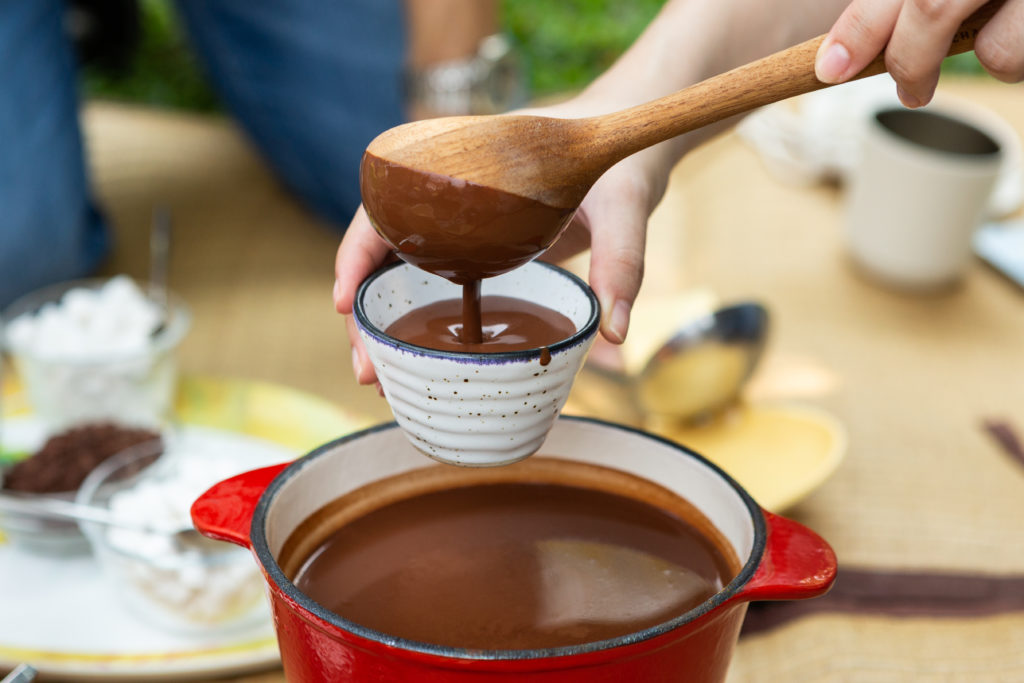
The focus is on single-origin. So there’s Chiangmai single-origin chocolate; our chocolate drinks, which are single-origin, and our single-origin chocolate sorbet.
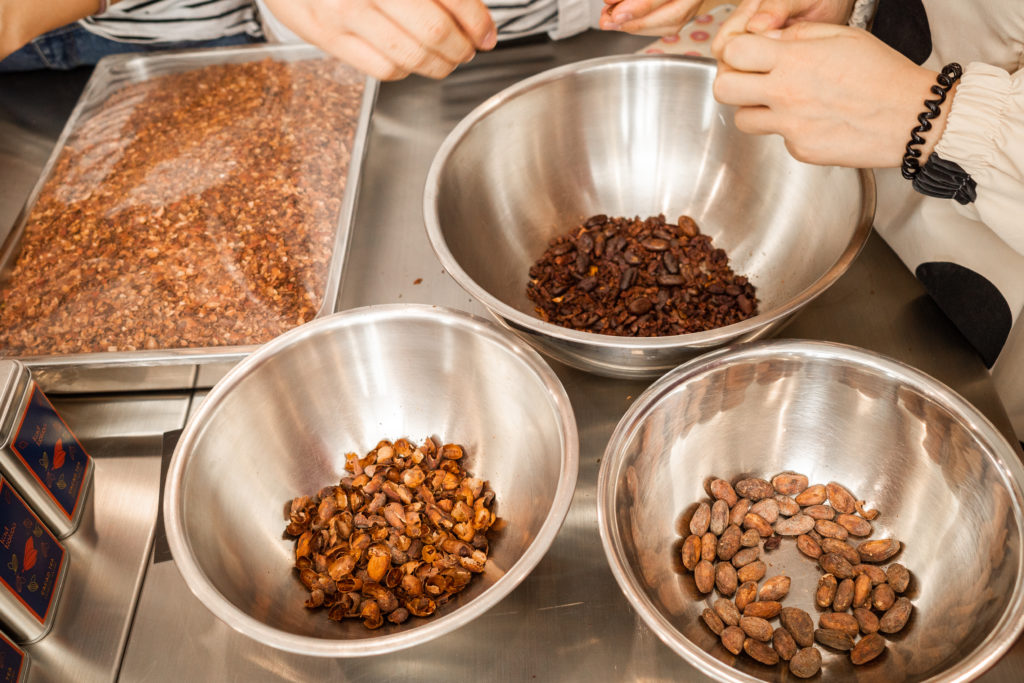
We’ve held a full-day course on bean to bar. Learners experienced how to crack cacao pods for the subsequent fermentation and made chocolate bars. Half-day sessions for making ganache, bon bons or a chocolate bar decoration have also been done. And we’ve had pairings of chocolate with wine, sake, coffee and tea.
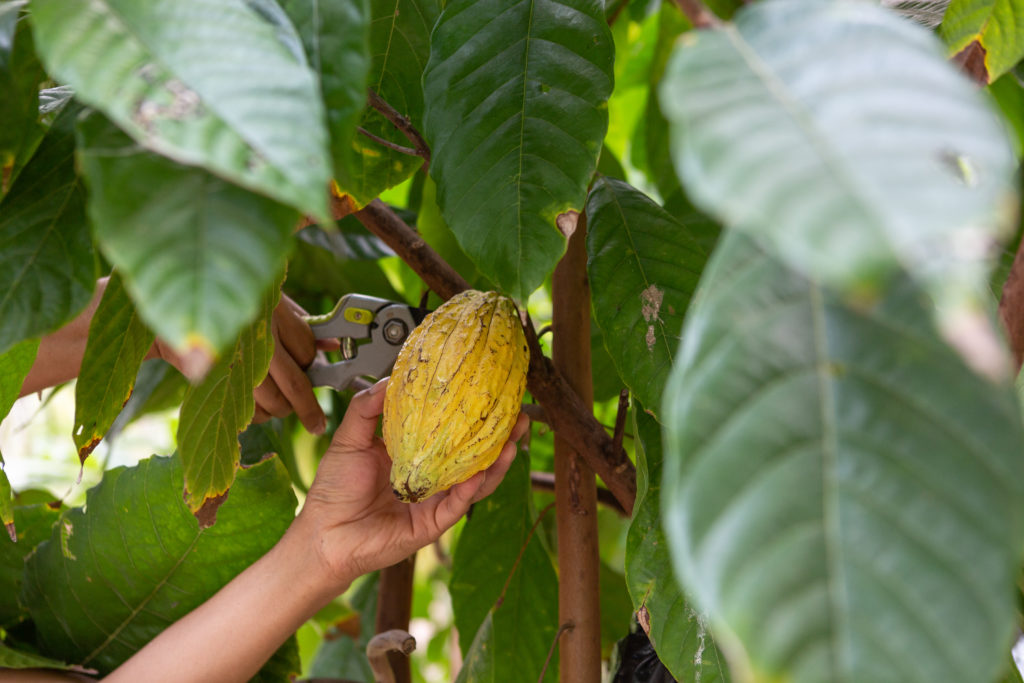
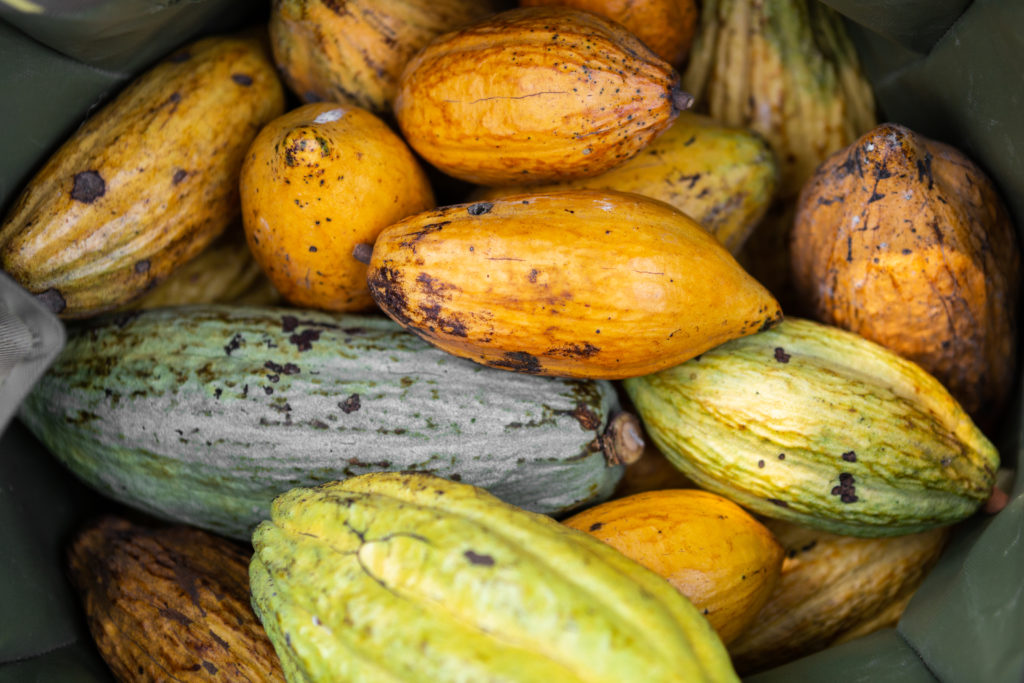
Our mission is to advocate for Thai specialty cacao and make fine chocolate from it. In essence, we are building the culture of Thai chocolate. Since we are not chefs, cooks or coffee roasters, we are not competing for who makes more award-winning or better-tasting chocolate to please some reviewers who set themselves as a standard but are subjective. We need to look beyond that by building a good team of passionate people who share the same vision to do something positive for this small industry and the whole ecosystem of Thai cacao, starting from the grower — they have to feel that they can receive noticeable consideration for the effort they put in to produce good cacao.
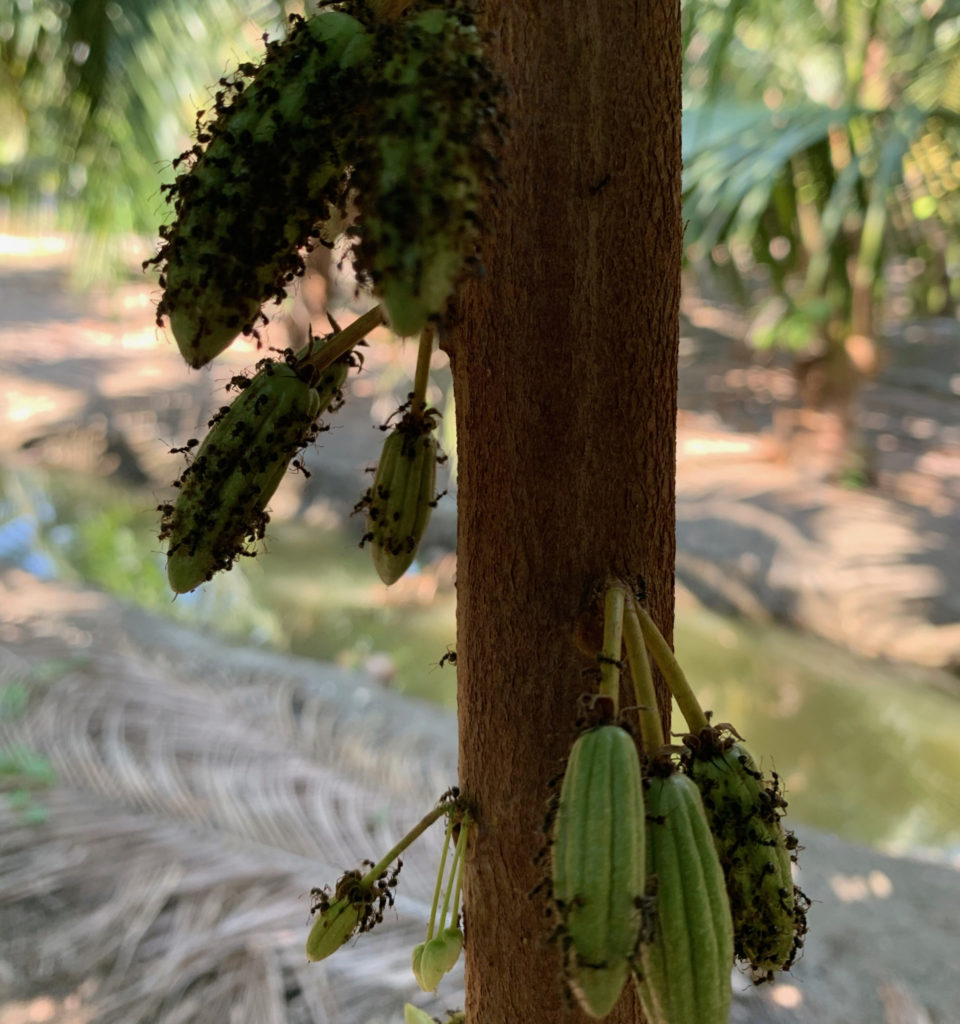
Paniti: There are two sides to the issues we face.
Nuttaya: The first is the customers’ mindset. Many of them are still accustomed to the industrial sweet confectionary chocolate taste, and some think that cacao isn’t a fruit but a kind of nut. Some have even said we’ve ruined their experience of lifelong chocolate loving.
Paniti: The other is the cacao supply and quality. Many of the farms had been deserted, like the one in Amphawa, so it will take some time for us to achieve a sustainable scale. For now, it is about trying and making chocolate from the beans available.
Nuttaya: Also, there are a few schemes out there with a short-sighted mindset, such as a chance to buy cacao pods at a higher price, for sale in other regions in Thailand under a new nickname. There are gullible farmers who’ve heard about the growing trend of cacao and chocolate in Thailand, and if they are taken advantage of by this opportunistic game, it could undermine our hope of making Thai cacao a specialty again.
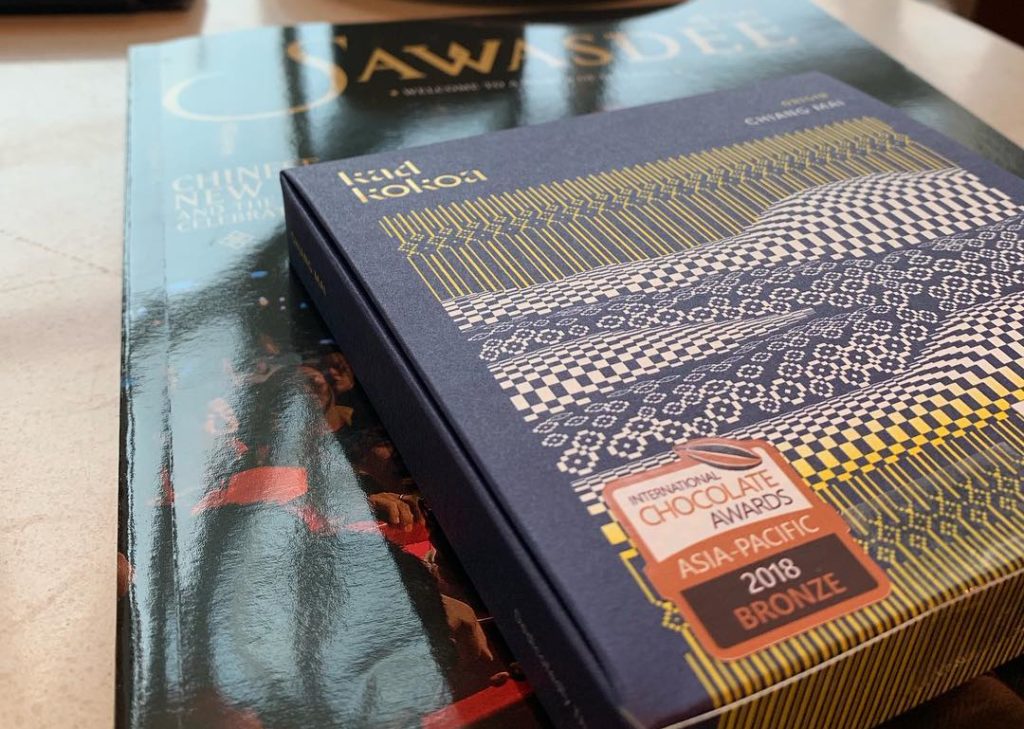
Paniti: We won an International Chocolate Award in 2018 for chocolate from Chiang Mai MTT farm and another from Academy of Chocolate for Chanthaburi. Both were in the category of dark chocolate from pure single-origin cacao. I think this has allowed international chocolate eaters and craft chocolate lovers to know that Thailand has some good cacao.
Nuttaya: I think in the future, Thai farmers will be able to sell their cacao beans internationally because we’re making them well known among chocolate makers around the world through these competitions.

Paniti: For us, sustainability is for the whole entire ecosystem of this industry, from the farmer to the chocolate makers and chefs, to be happy with what they do, because they know they’re doing something good. Kad Kokoa is about spreading the word of Thai specialty cacao, just like we started in Chiang Mai and spread to outgrowing farms. That’s where the name Kad Kokoa comes from: it means “market” in northern dialect.
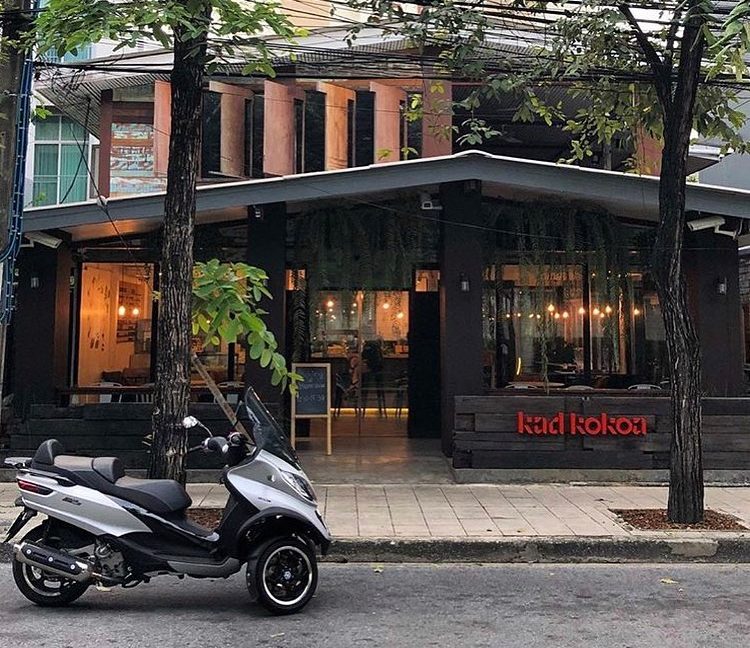
So, now you know about Kad Kokoa, their origin story and their vision. They’ve developed relationships with local cacao growers to empower them to make good quality cacao to supplement their income and benefit them in the long term and. Now it’s all about spreading the word and we’re extra excited because that Kad Kokoa is teaming up with us at ASAI Bangkok Chinatown to introduce the character and uniqueness of Thai cacao from their different locations right into the city. Very soon, you’ll be able to enjoy the single-origin Thai chocolate by Kad Kokoa at ASAI Hotels.
In the meantime, visit their lovely chocolatey at Kad kokoa cafe https://her.is/2Hy2RfR
